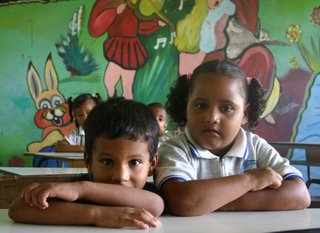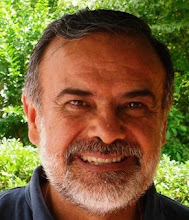Blended learning environments for effective teacher professional development in rural areas of Colombia
The Colombian Ministry of Education and three regional secretaries of education (Turbo, Atlántico, and La Guajira) have worked in collaboration with the Concord Consortium and Metacursos to offer the CONGENIA pilot project. CONGENIA is the Spanish acronym for “Genuine conversations about topics important to learn.” This project is co-sponsored by the Colombian government and USAID through the dotEDU project. This initiative has been implemented in three regions where there is a critical need to improve the quality of education. Results from “Pruebas Saber,” a set of standardized tests that measures basic education competences of all 4th and 8th graders in
 Effectiveness of teacher professional development (TPD) goes beyond participation of teachers in events that seek to increase their competencies as educators. It needs to produce positive changes in the way they teach and their students learn. CONGENIA thus added another dimension to the blend: we integrated work, learning, and training by fostering technology-based local and global communities of practice over an 18-month period, beginning in July 2005.
Effectiveness of teacher professional development (TPD) goes beyond participation of teachers in events that seek to increase their competencies as educators. It needs to produce positive changes in the way they teach and their students learn. CONGENIA thus added another dimension to the blend: we integrated work, learning, and training by fostering technology-based local and global communities of practice over an 18-month period, beginning in July 2005.
CONGENIA invited participating teachers to videotape classroom sessions at the beginning and at an advanced stage of the project in order to reflect on their own teaching practices, to share their thoughts in face-to-face and online forums, and to discover and record changes in methods. Each teacher selected at least one episode from his/her classroom. Teachers at participating schools shared their teaching episodes and discussed them locally. Additionally, distributed study groups of elementary teachers discussed issues related to content areas, relevant literature reviews, and current video-documented practices in the three regions in a blended format.
Participation in both local and global communities of practice helped teachers understand the meaning of “genuine conversations,” a core concept in CONGENIA. When they viewed their own classroom video episodes, teachers discovered that their classes were teacher-centered and that conversations with students were mostly didactic. Online and face-to-face workshops helped teachers realize that project- and inquiry-based learning strategies could foster student participation and allow teachers to become co-learners, willing to listen to student thinking and able to build knowledge collaboratively.
CONGENIA has been an occasion to rethink teacher preparation and TPD strategies in participating teacher colleges. It also has been a way of making synergies in participating elementary schools between continuing TPD and institutional efforts that seek to improve the quality of the education provided to students.
Blended communities and blended learning environments have accomplished their function in CONGENIA. The experience—as documented by teachers in institutional video cases—is very positive. It is now time to expand this successful initiative to other regions.
Concord, MA, November 2006

